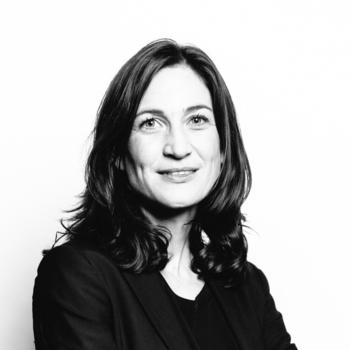Eva Kiesele

Alumna
The Event of Language. Speech, Thought, and Writing in the Rabbis.
Raum JK33/139
14195 Berlin
Eva is a trained philologist specialized in late antique rabbinic literature and culture. She completed a B.A. in Judaic and Middle Eastern Studies at Freie Universität Berlin, to then pursue a tailor-made curriculum at the Hebrew University of Jerusalem. Three successive fellowships allowed her to study in depth talmudic and Middle Persian philology, as well as literary approaches to rabbinic texts. The same period also saw her working for two research projects on Middle Persian Zoroastrian literature.
She continued her path at Princeton University, where she joined the Religion department as well as Princeton’s interdisciplinary “Program in the Ancient World.” Extensive work on talmudic redaction, tradition-building and canonization brought her to believe that the role of language – or perhaps, of a peculiar view of language – for the evolution of rabbinic texts merits scholarly attention. Seeking to pursue an integrated approach combining talmudic philology with insights from literary theory, philosophy, legal theory, and linguistics, Eva accepted a fellowship in Jewish Law and Legal Theory at Cardozo Law School, New York, and completed a comprehensive exam in Comparative Literature alongside her M.A. In October 2019, Eva joined the cluster of excellence “Temporal Communities - Doing Literature in a Global Perspective” as a doctoral researcher. She is a member of research area 3, “Future Perfect.”
Eva has translated scholarly literature for an anthology of classic articles in rabbinics (Routledge, 2017), and rabbinic sources for the ERC-funded BabMed project. She has received grants from Freie Universität Berlin and the Hebrew University of Jerusalem, the Ministry of Foreign Affairs of the State of Israel, Princeton University, Princeton Judaic Studies, the Princeton Institute for International and Regional Studies, and Cardozo Law School.
The Event of Language. Speech, Thought, and Writing in the Rabbis.
My project addresses a plain textual fact of rabbinic literature: rabbinic texts are entirely composed of individual “utterances” pitted against each other – where “utterance” can be anything ranging from biblical verses or parts thereof to apodictic teachings, statements attributed to named sages, brief anecdotes or even elaborate narratives, and finally, an anonymous voice highlighting contradictions, supplying explanations or normative understandings of other utterances. Unlike some of their successors, rabbinic texts of the classical period do not exhibit framing narratives or narrating voices. Unauthored accretions of oral tradition, they instead leave all the work to utterances being brought to bear upon each other. This practice of “bringing to bear upon” readily transcends historical sequence, geographic or textual provenance. As ever more utterances may be brought to bear upon what is already there, and in turn, what is there already may be brought to bear upon utterances made in the future, rabbinic texts appear to project a process of ongoing reference and relation, delimited neither by an originary beginning (beyond the Sinaitic revelation!) nor by a foreseeable end.
The unfolding of tradition would thus seem to stand as the unfolding of language itself. What view of utterances engenders such practice? Rabbinic literature does not theorize, and philological sincerity demands not to impute to the texts any views not expressed by them. This project boldly contends that we can nevertheless glean assumptions about the nature of language from these texts. To this end, I turn to those corners of rabbinic literature committed to principled discussion and higher degrees of conceptualization: treatment of halakhically (“legally”) significant human utterances. Close readings of exemplary concerns in rabbinic law – recitation of a mandatory prayer, protest from afar against occupation of one’s land, and the dispatch of writs of divorce – provide insight into the mutual relationship of speech, writing, and thought, as well as the transmission of utterances across spatial and temporal distance. It is my hope that this insight may shed light unto rabbinic literature’s construction of a transtemporal community of utterers.
peer-reviewed articles
“Ohrmazd’s Better Judgment (mēh-dādestānīh): A Middle Persian Legal and Theological Discourse” (with D. Agostini and S. Secunda), Studia Iranica 43/2 (2014).
reviews
Rachel Neis, The Sense of Sight in Rabbinic Culture (Cambridge, 2013). The Marginalia Review of Books 06/2014.
Jenny L. Labendz, Socratic Torah: Non-Jews in Rabbinic Intellectual Culture (Oxford, 2013). The Marginalia Review of Books 08/2013.
academic translations
Alexander Kohut, “Die talmudisch-midraschische Adamssage in ihrer Rückbeziehung auf die persische Yima und Meshiasage.” Classic Essays in Early Rabbinic Culture and History. Edited by Christine E. Hayes. Routledge, 2017.
Wilhelm Bacher, “Das altjüdische Schulwesen.” Classic Essays in Early Rabbinic Culture and History. Edited by Christine E. Hayes. Routledge, 2017.







